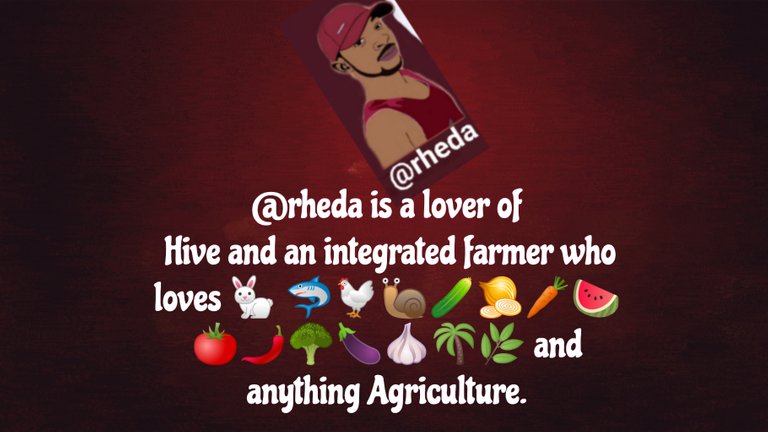Hello Hivers!!
Welcome to my blog!
As a field officer, I recently had the opportunity to conduct a training program for farmers in the Etomi Local Government Area of Cross River State on climate change, its impacts, and climate-smart agriculture techniques.
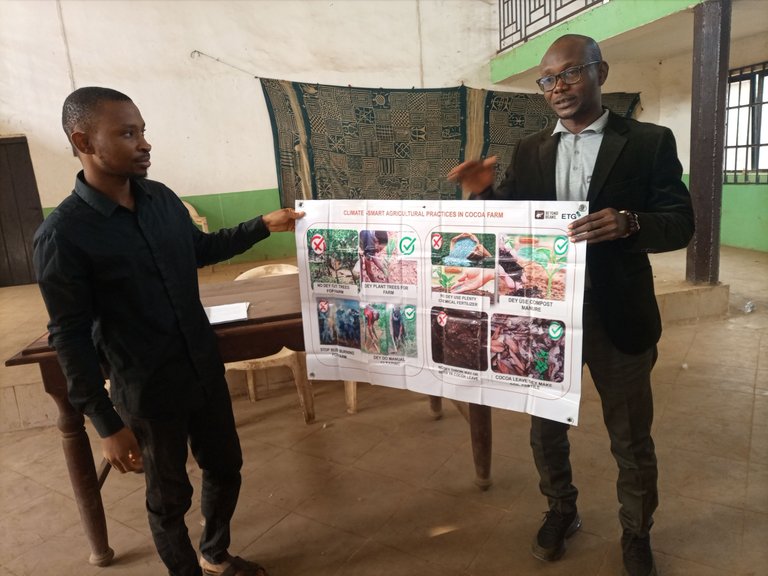
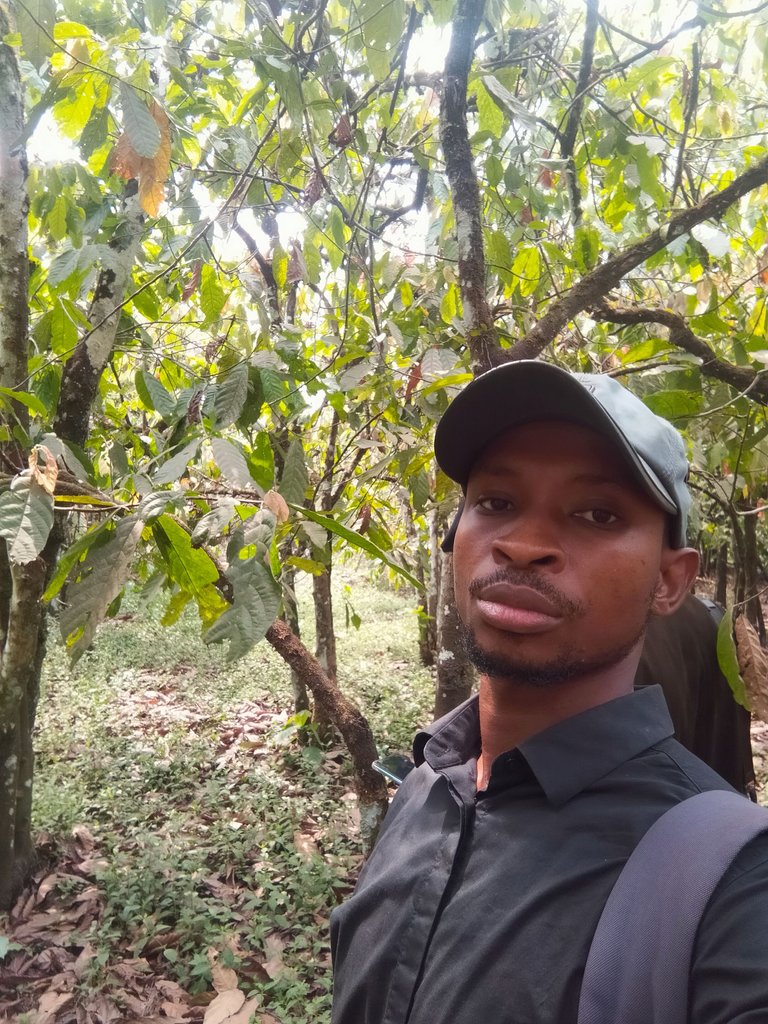
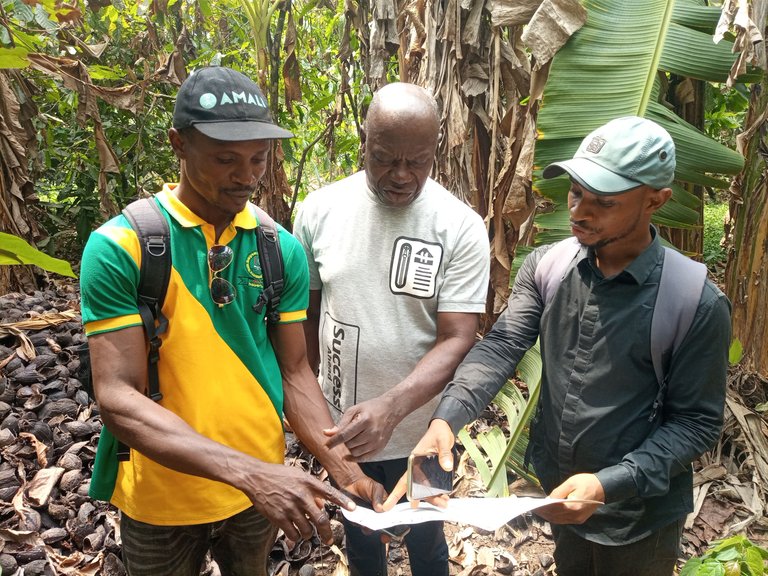
The training program focused specifically on cocoa farming, agroforestry, and sustainable agriculture practices.
The training was conducted in the town hall, and we visited one of the farmers farm. during which we covered a range of topics related to climate change and agriculture.
We started by discussing the causes and consequences of climate change, including rising temperatures, changing rainfall patterns, and more frequent extreme weather events. We also talked about how these changes can affect agriculture, and in particular, cocoa farming.
We then moved on to the topic of climate-smart agriculture. This is an approach to farming that aims to increase productivity and resilience while reducing greenhouse gas emissions and other negative environmental impacts.
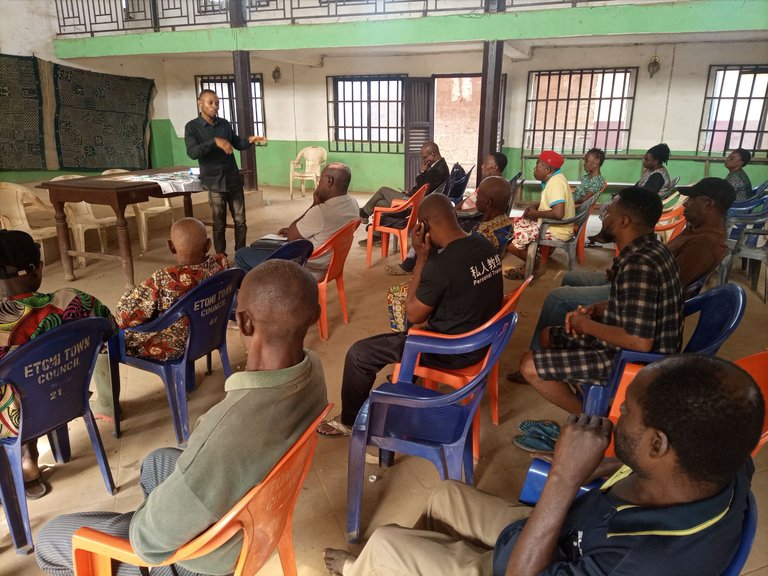
We discussed a range of climate-smart agriculture practices that are particularly relevant to cocoa farming in the Etomi Local Government Area, including the use of shade trees, intercropping with other crops, and the use of organic fertilizers and pesticides.
We also talked about agroforestry, which involves planting trees on farms in a way that provides additional benefits to both the environment and farmers. In the context of cocoa farming, agroforestry can help to improve soil health, increase biodiversity, and provide shade and wind protection to the cocoa trees. We discussed different types of trees that can be planted in agroforestry systems, and how to manage them for maximum benefits.
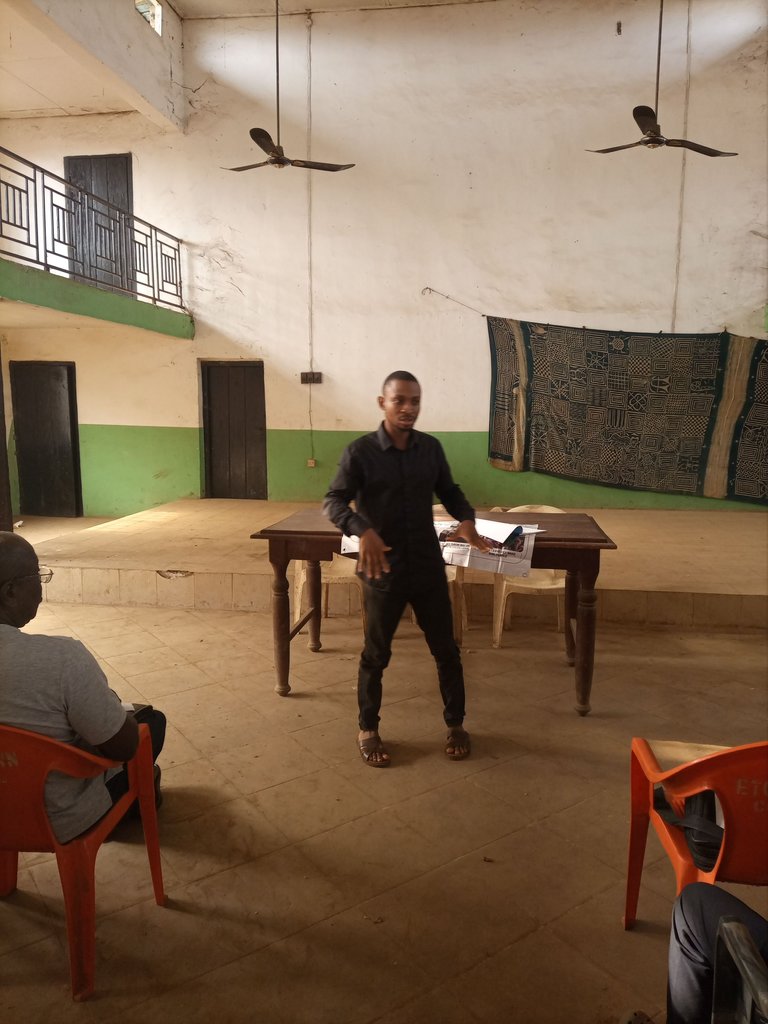
Finally, we talked about sustainable agriculture practices more broadly. This includes a range of practices that aim to reduce the negative environmental impacts of farming while also increasing productivity and resilience.
We discussed the importance of soil health, water management, and biodiversity, and how farmers can incorporate these considerations into their farming practices.
Overall, the training program was a great success. The farmers were engaged and enthusiastic throughout the training and many of them expressed an interest in implementing some of the practices we discussed on their own farms.
It was clear that there is a lot of interest in climate-smart agriculture and sustainable farming practices in the Etomi Local Government Area, and I feel privileged to have had the opportunity to share my knowledge and experience with these farmers.
In conclusion, it is clear that climate change poses a significant threat to agriculture in Nigeria, particularly in the cocoa farming sector.
However, there are many practices that farmers can adopt to increase productivity and resilience while also reducing negative environmental impacts.
Through training programs like the one I conducted in Etomi, we can help to ensure that farmers have the knowledge and skills they need to adapt to a changing climate and build more sustainable farming systems for the future.
 )
)
Original Content Posted By Me @rheda


Follow me on:
Facebook
(